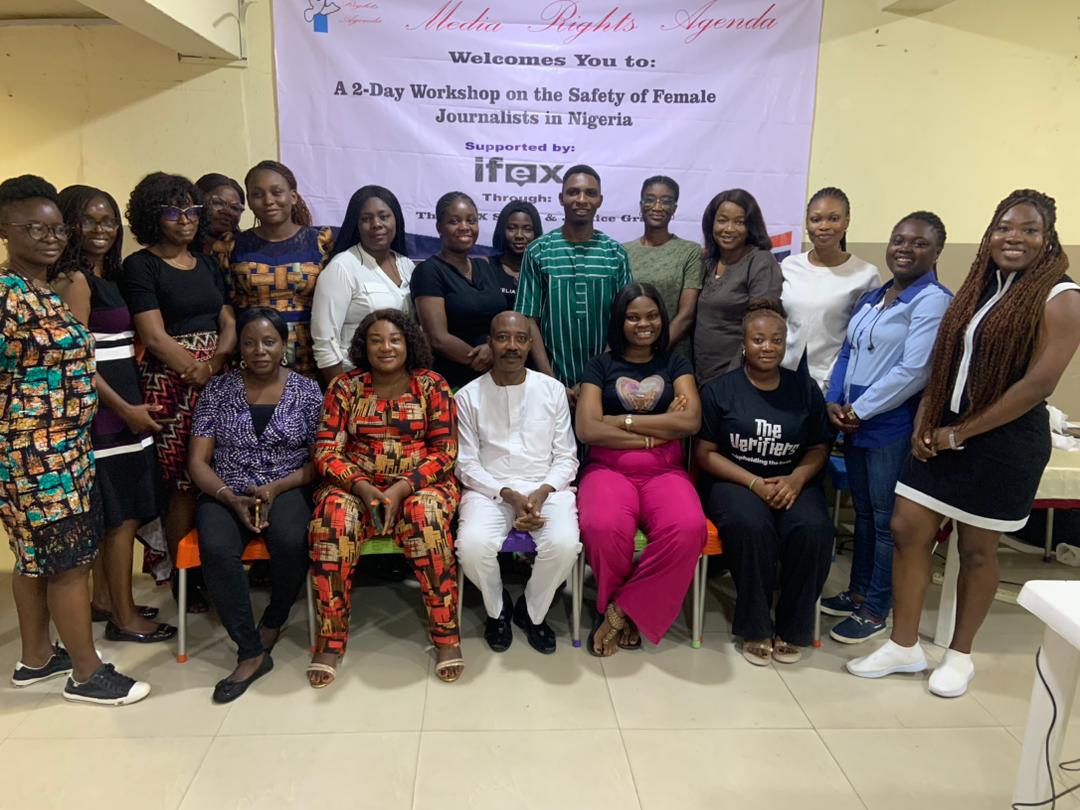Media Rights Agenda Trains Female Media Practitioners on Safety, Legal Redress

|
Getting your Trinity Audio player ready...
|
As part of its mandate to support media and democratic development in Nigeria, the Media Rights Agenda (MRA) trained women in journalism on safety precautions and tools. The two-day intensive workshop was held from July 29 to July 30 at the International Press Centre Hall in Ogba, Lagos.
MRA’s Deputy Executive Director, Ayode Longe, highlighted the increasing risks female journalists face in Nigeria. He stressed their need to understand the national, regional, and international mechanisms to seek justice when their rights are violated. As such, the workshop featured intensive training, plenary discussions, and experience-sharing with media professionals, legal practitioners, and civil society advocates.
Blessing Oladunjoye, the Publisher of BONews Service, trained the journalists on mapping the risks while on a reporting assignment, highlighting how female journalists are uniquely vulnerable to attacks because of their gender. She explained that aside from physical and emotional attacks journalists could face, women in the professions are vulnerable to sexual assault, among others.
She further led a plenary session on how media practitioners can create a safer newsroom for female journalists, with recommendations ranging from organisations providing accommodations for when journalists work late to providing a creche to accommodate nursing mothers in the newsroom.
Ayomide Eweje, the MRA Programmes Officer, gave practical guidelines to the participants on how to use technology and digital tools to enhance their safety and efficiency. She highlighted tools such as Google Maps, Google Earth, Signal, and ProtonMail could be instrumental. She also shared safety tips journalists could use while on assignment, such as planning their exits ahead of time in case of an emergency. She impressed upon them that no story is worth their lives.
When an attack does occur, Legal Practitioner Monday Arunsi advised the participants that they can utilise legal redress, which is available to protect women and journalists. Journalists can file a Fundamental Rights Enforcement Action under the Fundamental Rights (Enforcement Procedure) Rules 2009. He also explained that laws like the Violence Against Persons (Prohibition) Act (VAPP Act) can be used to seek redress for stalking and abuse.
Journalists can also leverage civil society organisations such as MRA, Centre for Journalism Innovations and Development, Citizens Gavel Foundation for Social Justice, and Lagos Public Interest Law Partnership, to fight for their rights. The legal practitioner advised the participants to always report attacks early, familiarise themselves with their legal rights, and advocate for institutional accountability.
The workshop concluded with MRA’s Deputy Executive Director urging government, lawmakers, and media stakeholders to protect female journalists by enforcing laws, providing support, and promoting safety.
“Media houses should establish and promote open-door policies that encourage younger female journalists to report incidents of harassment, threats, or any form of abuse in the newsroom,” he stated. “Senior colleagues and management must be approachable and responsive to such reports to foster a safe and supportive work environment.”
At the end of the workshop, participants shared that they had learned a lot that they will implement in their profession.
The International Freedom of Expression Exchange supported the training through its Safety and Justice Grant.




